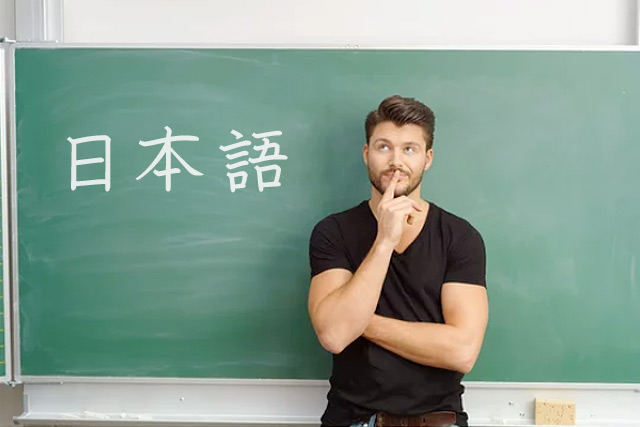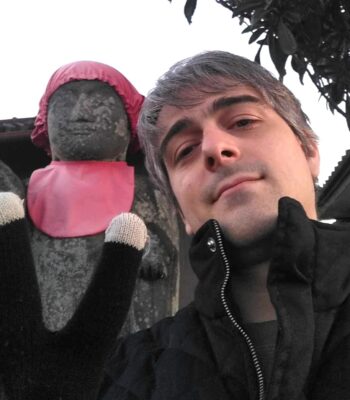- Learning Japanese
- Japanese Culture
What Excellent Japanese Speakers Know That Most Don’t: Top 8 Secrets
2025.06.21

How many people do you personally know that speak not just pretty decent, but incredibly fluent Japanese? Maybe one person? If you’re lucky? That’s what I thought.
There’s a reason for this: most people don’t know the secrets to becoming truly excellent at Japanese—and honestly, I wouldn’t have known either if it weren’t for Oku Sensei. From the very beginning, she taught me to avoid the exact mistakes in this article, and that’s exactly why I was able to reach a level of fluency that very few people ever achieve.
In this article, I’m going to reveal those secrets. The things that no textbook tells you. The hard truths and strategic mindset shifts that separate truly excellent Japanese speakers from everyone else.
Whether you're just getting started or stuck in the intermediate desert, this article will help you break through to the next level—and maybe even become one of the rare few who actually get good enough to shock native speakers.
Don’t listen to the naysayers; they’re wrong

People will tell you “why are you studying Japanese? I mean, it’s nice to keep it up as a hobby, but it isn’t something you could actually use for work”. “Yeah I heard the work culture in Japan is terrible, so it’s probably better to stay in your home country”. “You need to get a real job, Japanese isn’t going to make you money”. “With all the automated AI translators out there, there probably won’t be any work for people with foreign language skills in a few years”.
I will tell you from experience as someone who uses Japanese language skills literally every single day for my job; that is completely wrong.
There is only one thing that matters, only one thing that determines if you can actually use Japanese skills for work; if you’re good or not.
Think about it; there are hundreds, thousands of Japanese people in Japanese companies that speak varying levels of English. If you speak better English AND Japanese than both them AND the AI translators, you automatically become an invaluable asset to the company. And combine those language skills with other skills? Now you’re lethal.
Whoever told you that learning Japanese is a useless skill simply lacks imagination; Japanese can be one of the most useful skills out there, if you know how to wield the skill properly. Just look at Atsugiri Jason, perfect example.
Guts and determination

It’s not easy going to a completely foreign country and people treating you differently. It’s not easy being unable to convey your thoughts and feelings properly for years on end. It’s not easy standing out, and doing something different from everyone else. And it’s not easy being misunderstood, when you only meant well.
But never forget; the more different and the harder the challenge is, the more valuable that experience and the personal growth is that you gain from it. If you really become excellent at Japanese, you not only will be able to speak, read, and write the most complicated language on the planet, but will grow so much as a person that you’ll look back at your past self as unrecognizable.
Power through, stick to your guns, don’t look back, and never let setbacks keep you down. Japan is a wonderful country with a wonderful culture and language, and the more you learn about it, the more fulfilled, happy, and well-rounded as a person you’ll become.
Unshakable focus

There will be shiny objects trying to take away your attention. Your job is super busy and “you don’t have the time”. You’re enjoying relaxing during your year abroad with other foreign exchange students, and would like to take it easy a bit longer. There’s this offer for this internship that isn’t related to Japanese or Japan, but it would look really good on your resume and get you some good pocket money.
DON’T FALL FOR THESE DISTRACTIONS. Ask yourself before you get into anything new; is it related to Japanese and will this lead to my Japanese improving? If your answer is “not sure” or “no”, DON’T DO IT.
Stay the path, keep learning, and don’t let anything stop you until you become so fluent almost every Japanese person you meet tells you that you sound like a native speaker. The ones who fall for the shiny objects never get good, and stay mediocre indefinitely.
“I learned Japanese all by myself and was fluent in a year” is a myth

It might not be on purpose, but there are WAY too many youtubers saying this and misleading goodhearted people. Yes there are some exceptions out there.
There might be some genius who was miraculously able to pass the N1 just by doing Duolingo everyday on the pot, or some other person who just “kind of picked it up somehow” by listening to a disturbing amount of J-POP every day and watching an absurd amount of anime.
But for most people, even very naturally intelligent and gifted people, this is impossible.
For most people, the structure of the Japanese language is so completely different from any other language, there is no way you can possibly learn the alien language structure “through osmosis”.
You need to take the time to learn a completely different way of structuring sentences, thoughts, feelings, and responses that is unlike anything you’ve ever seen before. This is a difficult process, and even for gifted people takes years to finally understand enough even for basic fluency.
And if you want to get excellent? Now that’s a whole nother ball game (Trust me I’m saying this as someone who literally uses Japanese everyday at work).
You need to study honorific language, how to write letters, emails, essays, speak in formal settings, speak casually, and understand all the ridiculous number of cultural and linguistic nuances that Japanese innately has. Doing this without any plan or formal guidance from someone who knows what they’re doing? Ridiculously difficult, and it will take you at least 10 times the amount of time. Don’t be misled by the few exceptions out there, and get the help you need to learn at a steady pace using a highly trusted and reliable source like your local university or Oku Sensei’s Japanese.
The people you spend your time with will define your level of Japanese

It’s shocking how many learners of Japanese never consider this. Think about your native language; the language your professor uses is much more educated and polite than the language that rude guy who honked his horn at you at the light is, right?
The same applies to Japanese. If you spend your time around poorly spoken Japanese delinquents, you will start not only speaking like, but acting like them.
On the flip side, if you spend your time around well-educated, intelligent, eloquent, and well mannered Japanese people, you will learn a more polite, refined, and intelligent-sounding Japanese.
The other majorly important part of this is that this will change what type of person you become. Those who you choose to spend time with that speak a higher level of Japanese will be a positive influence on you, teaching you the positive sides of the Japanese culture, and educating you to become better and grow as a person.
This is absolutely priceless, and will come to help you in your personal, professional, and love life. You can learn something from everyone, and these people will become your Japanese role models.
If you continue to show them gratitude and treat them as well as you can, it will all come back to you tenfold.
Never forget; when you are in a foreign country, you are representing the country you came from. People will observe you with much more scrutiny than when you are in your mother country, because you are a lens through which they judge and develop an impression of the country you’re from.
If you are strong in character and make a good impression on others, you will attract good people that will help you. But if you rest on your laurels, stop being careful, and start thinking “It doesn’t matter because I’m never going to meet these people again”, tragedy will befall you. You will start to attract people of poor character that drag you down and become a negative influence on you right under your nose, and without even realizing it, you’ll slowly but surely become the type of person you didn’t want to become, and get farther and farther from your true dreams and goals.
You’re not as good as they say you are

If you’ve ever been to Japan and spoken a couple words in Japanese to someone, you’ve probably gotten a “Nihongo ga o-jozu desu ne” from the local people (it means “Oh your Japanese is very good!”). Unfortunately, there are too many foreigners in Japan who let this get to their head, and make them think they are actually the Lebron James of speaking Japanese.
Most of the time, Japanese people use this expression to compliment foreigners on their Japanese because they are happy that someone is trying to learn their language, and wish to show gratitude and encourage the person to come to Japan and get to know their country.
Or, sometimes it is used simply as a nicety similar to asking “How are you?” in English.
When someone asks you in English “How are you”, have you ever responded with “oh I’m absolutely terrible”? Probably almost never, and even if you did it would be as a joke.
This is because the expression is understood to be a linguistic nicety, used non-literally because you want to show cordiality to the other person and make them feel noticed. “Nihongo ga o-jozu desu ne” is very similar in this regard.
On top of this, the sad reality is that most non-asian foreigners cannot speak Japanese very well, so even if you can say a few basic things, it’s very impressive to Japanese people, especially those living in more rural areas.
If you’re teaching English in some middle-of-nowhere “inaka” (country side) as the only token foreigner surrounded by only Japanese people that don’t know any foreigners beside you? They’ll think your amazing no matter what you say. Not because you actually have amazing Japanese skills, but because they have no frame of reference.
Never forget; there’s always a bigger fish, and the bigger the city you live in, the more high level non-native Japanese speakers will be there. So in short; be happy with their compliments, but don’t let them get to your head. Stay modest, keep working hard, and give yourself a frame of reference by listening to or interacting with other foreigners who are aiming to or already speak a very high level of Japanese.
They want you to be their free English tutor; don’t play their game

If your goal is to teach English in Japan and you have no interest in learning Japanese, this doesn’t apply to you. However, if what you really want to do is learn Japanese but you feel like all you’re doing is using and teaching English all the time, listen up.
English is la lingua franca. People from all over the world, whether they want to learn it or not, are forced to study it in school. They have English classes, homework, tests, exams, strategy books, grammar books, literally entire sections of bookstores and libraries just for how to learn English.
Not only this, but your grades in your English classes in Japan will literally affect the course of your entire life. Even if you never actually use English at work, your exam and class grades for English determine what grade schools you go to, what university you go to, what level company you can get into, and even how much you can move up the ranks in a Japanese company.
Even in other countries, this tendency is quite similar, but for Japan, this tendency is extremely strong, due to the fact that English is literally one of the hardest languages for Japanese people to learn. This leads many Japanese people to have an “English-complex”; they can’t speak English, but feel like they should be able to and inadequate because of it.
Due to this English-complex, many Japanese people are willing to do almost anything to boost their English skills, and a random foreigner wandering around Japan is the perfect prey.
Let me tell you a little story I actually went through. It was one of the first times I went to Japan, and I was sitting with another American friend at a restaurant, just the two of us. Out of the blue, a Japanese woman neither of us knew came out of nowhere, and sat right in front of us with a flustered look on her face.
Both of us surprised and concerned, tried asking her in both English and Japanese “Are you ok”? Without responding, she opened her phone, and started frantically scrolling through apps. Both of us terribly confused and worried, looked at each other, wondering what was happening and if she needed help.
Eventually, she opened google translate, and we awaited to see what she was going to try to tell us. She started by showing her name in Romanji, and pointing at herself, saying “me” and her name. We nodded, and said “It’s nice to meet you”. For a solid 15 minutes without any of us ordering, we tried to understand why she had sat with us, and if she needed any help. We asked questions, and all that came back were simple responses in broken English about her family, or her favorite food, etc. Finally, it dawned on us; “OOOOOOOOOOOH, she’s trying to practice English!”.
If you’ve ever stayed in Japan for a significant amount of time, you have likely experienced a random encounter like this yourself. If you don’t care about learning Japanese, then by all means be a nice person and teach them some English for a bit. But if you want to learn Japanese? STOP what you’re doing right now and think very carefully.
If it’s a random person on a train or bus, it might not hurt to speak with them in English for a bit. But if you are constantly giving in to the pressure of other Japanese people you see on a regular basis and letting them use you to practice their English on you even though you really want to get good at Japanese? You’re 100% shooting yourself in the foot and need to stop what you’re doing right now.
Japanese people will make you feel guilty for not teaching them English; DON’T GIVE IN TO THE GUILT TRIPPING. There is nothing wrong with you, there is nothing wrong with wanting to learn Japanese, and no you are not a bad person if you don’t teach English to every 3rd Japanese person you know, it’s ok.
Life is short, and you need to chase your dreams. If you’re passionate about learning Japanese, that’s fantastic, and if you follow that passion and fulfill your dream of speaking fluent Japanese, not only will you start on a path to a much more fruitful and happy life, but be able to help so many others with your talents and abilities.
It’s a waste for you to not try your best to get good at Japanese, so don’t give into the pressure! You may even have teachers trying to egg you on to get you to teach English for their students without helping your Japanese in return.
Be determined, say no to those who only use you to practice English, and try to listen, speak, read, and write only in Japanese, every day. To develop your “Japanese brain” or the ability to think completely in Japanese, you need to let go and stop relying on your English brain for an extended period of time.
To do this, there is only one way that is the most effective; reduce the amount of time you think in English and use English. This is absolutely paramount when you are in the intermediate and beginner-advanced stage, and if you start slacking during this time and begin using lots of English, you’ll lose an incredible amount of the precious progress you’ve gained.
Which brings me to my next point!
You rest on your laurels, you lose

With all the Japanese people telling you how good your mediocre Japanese is and asking you to teach them English, it’s no wonder so many Gaijin stop trying to improve their Japanese at a certain point and give up. “Everyone tells me I’m so good, and hey I can hold a conversation relatively well. Eh, I guess I’m ok with where I am”.
But are you? Or are you just lying to yourself because you think it’s not feasible to get any better because most people are about the same level as you, or because you spend all your time using English preventing you from overcoming the never-ending desert that is the intermediate level.
If you don’t want to just be “ok”, but excellent, you need to change your mentality 180 degrees. “I’m not going to be discouraged by all the people that tell me ‘it’s too hard’. I’m not going to make excuses to stay mediocre. I will do what it takes every single day and won’t stop until my Japanese is so good that I shock everyone I meet”. Stay hungry, stay modest, and strive to continuously learn and get better than the day before.
One-trick ponies will never become excellent

How many of you know that guy in your Japanese class that is “The Kanji whiz”? Yeah you know him; uses at least 2 different Kanji apps and flash card decks, and knows the Kanji for pottery made with a specific glaze from the mountains of Yamaguchi prefecture.
Have you heard him speak Japanese before? Is he super fluent? Is he exceptional in grammar and can he write incredible essays all in Japanese? 90% of the time, the answer is no, and for good reason.
Sadly, it’s not going to be very easy for Mr. Kanji whiz to make lots of Japanese friends, or move to Japan and get immersed in the culture, or work for a Japanese company or use Japanese in a professional setting.
Why? The reason is simple; he doesn’t actually have practical Japanese skills. If you want to truly become an amazing Japanese speaker, you need to learn practical Japanese in a holistic, comprehensive manner.
Not only Kanji, but reading, writing, listening, speaking, grammar, culture, keigo, and all the other nuances of the Japanese language and culture. This is how you get the Japanese skills that you can actually use, and the knowledge of the culture that will have you able to make Japanese friends or significant others in Japan with ease.
If you are struggling to get practical Japanese skills and have reached the point where you can’t progress anymore on your own, don’t worry; Oku Sensei can help you out. If you take one of her courses and follow her advice, I promise you will start moving towards your goal of becoming genuinely amazing at Japanese.
Stop making only Gaijin friends

It's actually upsetting how many people make this mistake. I can’t tell you how many people I’ve met that could have gotten incredibly good at Japanese in a very short amount of time if they had just understood this rule.
Yes I know you live in a dorm surrounded by other westerners so it’s easier to meet them than Japanese people.
And yes I know it’s very comfortable to talk with them most of the time, because they get where you’re coming from and you don’t feel as much of a barrier.
And yes, I know how hard it is trying to understand all the crazy specific nuances of Japanese culture and language, and how frustrating it is when you accidentally offended someone and now have to write a two page apology letter because you didn’t know how to properly use Keigo in that situation when he asked you for something.
However, I promise you; going out of your comfort zone to try and really learn about Japan and Japanese will make your Japanese amazing, and give you a deep understanding of the Japanese people that most other foreigners don’t have.
For a very long time, yes it will be extremely mentally taxing and difficult. You will inevitably offend people, have to clean up messes because you don’t know what you’re doing, and will get dirty looks here and there when you say or do something “off”.
But it’s ok, give yourself a pat on the back whenever that happens, because that discomfort is bringing you one step closer to speaking ridiculously good Japanese.
Have the courage to continue making mistakes, and the sensitivity, thoughtfulness, and modesty to reflect about what you could have done wrong, and apologize for when things go ary.
NEVER FORGET; most of the time, Japanese people are too shy or sensitive to tell you that they are offended. It’s up to you to “read the air“(空気を読む), think about what could have gone wrong when and where, and apologize.
If you absolutely can’t figure it out on your own, don’t worry; explain the situation to another Japanese friend or significant other and ask what they think could have gone wrong, or even in a worst case scenario, ask the person you offended. It’s not important how you fall, but how you get up. In Japan, the ability to apologize and be modest is a cultural must, and without this, you will be unable to survive the hyper-polite, hyper-modest society that is Japan. However, as long as you remember this rule and stick to it, it will all be ok in the end, trust me.
Conclusion

Let’s be real—most people aren’t excellent at Japanese. Not because they can’t, but because they never even realized what it actually takes. They let distractions pull them away, they believe the myths, they settle for “pretty good” and stop pushing forward. But you’re not like that. You’ve made it this far into the article, which already means you’re hungry for something more. You want to reach a level of Japanese that’s not just functional, but truly impressive—and life-changing.
So here’s the truth: excellence isn’t random. It’s not about having natural talent or being born a genius. It’s about having the right mindset, the right community, the right work ethic, and the right guidance.
And that’s exactly why we built Oku Sensei’s Japanese (OSJ)—to give passionate learners like you the tools, support, and structure to become the kind of speaker most people only dream of becoming.
If you’re ready to stop being “just another gaijin” and start becoming someone who actually shocks native speakers with your Japanese, check out what OSJ has to offer. Whether you need a community, a coach, or a path forward—you’ll find it here.
👉 Explore our courses and start your journey with OSJ
You’ve got what it takes. Now make it happen.


















